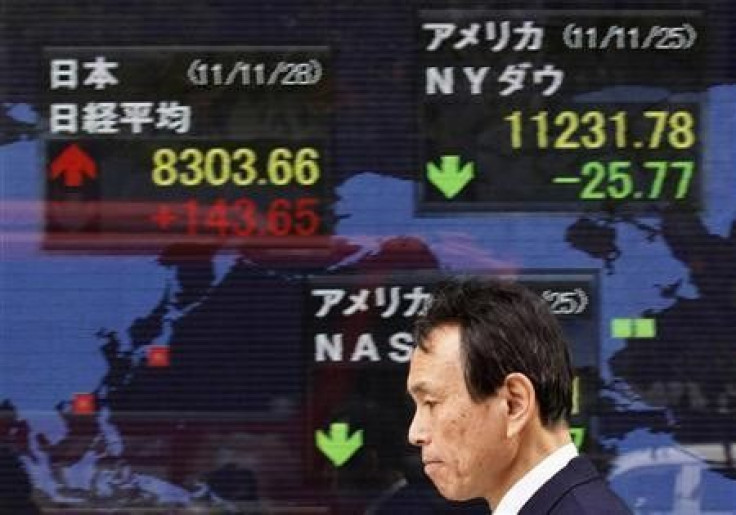Abenomics Helped Fuel Thursday's Asian Market Dive, But Japan Is Hoping It's Just A Hiccup

A slowdown in China’s manufacturing sector and hawkish comments from U.S. Federal Reserve Chairman Ben Bernanke shook the Asian markets – especially Japan’s Nikkei – Thursday, but Tokyo is sticking with "Abenomics," the economy minister said. Still, the sudden plunge, which sent the Nikkei tumbling 7.3 percent, demonstrates a financial vulnerability that proves the jury is still out on Prime Minister Shinzo Abe’s namesake monetary easing policy.
Economy Minister Akira Amari blamed the plunge in share prices on weak Chinese data, and said Japan would hold fast to the monetary policies that have recently revivified its long-lagging economy.
But the real problem is in interest rates, or yields, on 10-year Japanese government bonds. The Bank of Japan has worked aggressively to keep borrowing costs low at a time when the government’s finances are especially vulnerable to rises in interest rates.
Two decades of stagnation have amplified Japan’s long-term debt problem, and some have speculated that bond yields above 2.5 percent would destabilize the country, the AP reported. On Thursday, they rose above 1 percent for the first time in a year.
Paul Krugman, an economics columnist at the New York Times, said concerns that the Bank of Japan may change its tune on interest rates helped drive Thursday’s fall.
“The impact of expected future monetary policy on long-term interest rates is ambiguous – rates might rise because they expect the BoJ to tighten, or fall because they fear that it will fail to end deflation,” he wrote. “But worry about the BoJ’s resolve should have a clear impact on the yen, which should strengthen – which it did.”
For now, Japan is betting that Thursday’s hiccup was just that and is sticking to the policies to which other debt-saddled nations, like those in Europe, are now looking.
© Copyright IBTimes 2024. All rights reserved.












